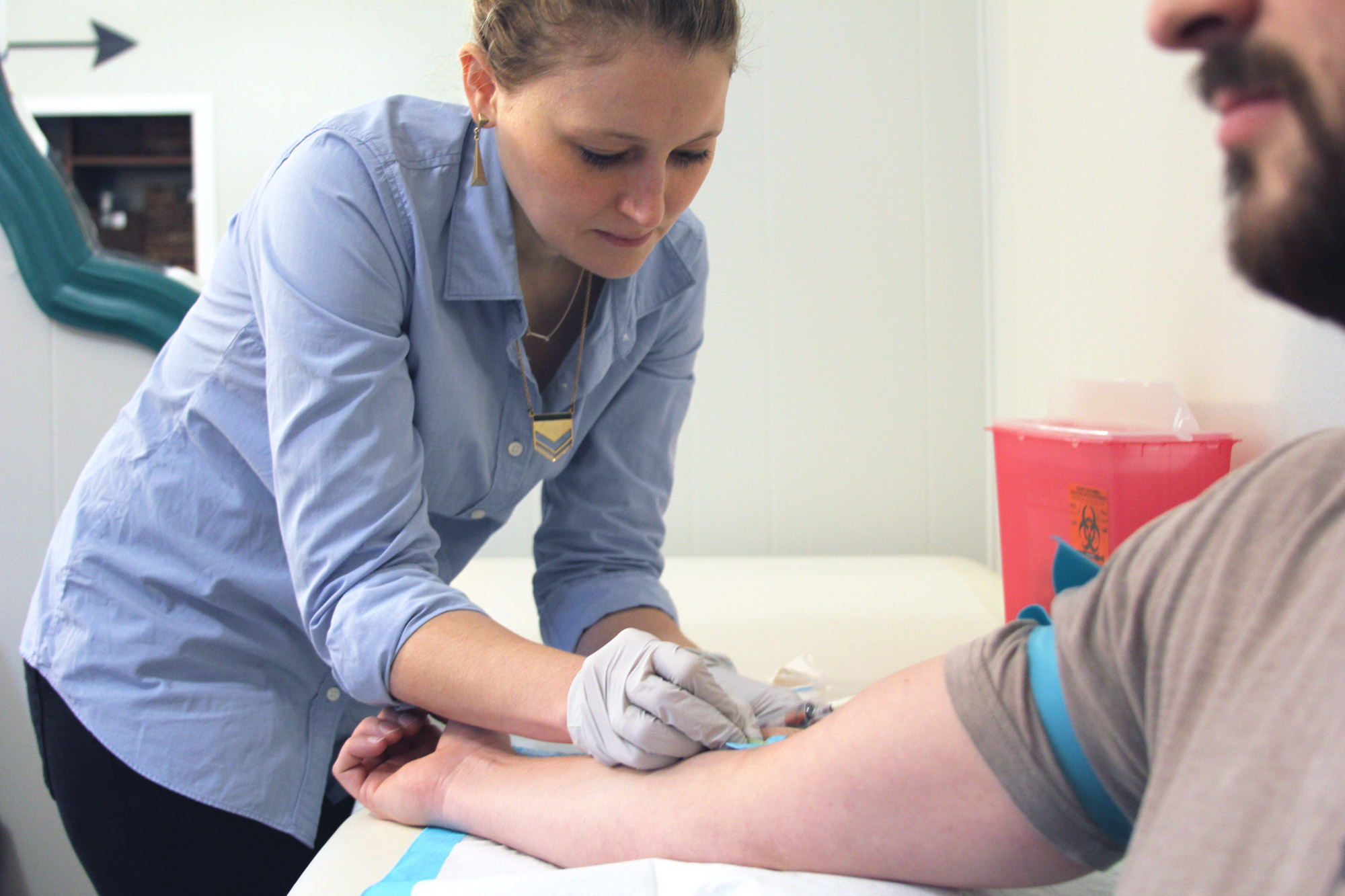Should You Get Blood Work Done Every Year?
Dr. Archer's recommended annual blood tests

I recommend for both adults and children to get their blood checked every year.
In the medical world, blood work done on a yearly basis is known as your “annual lab work” or “annual labs” for short. The purpose is for health maintenance and monitoring on a yearly schedule. Note that not every doctor likes to monitor the same things on a yearly basis (more on that later). Annual labs are often ordered in conjunction with a yearly physical, although not always.
Why should you get it done every year? Because things change from year to year. Your environment changes, your life, your people, your work, your exercise, your diet. A lot can happen in a year. I’ve seen blood work look normal one year, and then the next year, there are lots of wonky things going on.
In terms of health monitoring as a reason to get your annual lab work done, your labs can show me if something is going awry before it turns into an actual diagnosis. An example of that would be Type 2 Diabetes. Some people are completely shocked when they get a diagnosis of Type 2 Diabetes. Yet, if you go back and look at their labs, you can see the story unfolding for many years.
Part of my training as a naturopathic physician is the gray zone — I’m specifically trained to see things before they turn into a permanent problem.
Because no one wakes up out of the blue with a diagnosis of Type 2 Diabetes. It shows up over time, and you can check that by ordering the appropriate annual lab work.
Getting your blood work done on a yearly basis also helps to establish your normals. We want that. It’s great to have a baseline, so when things start to go haywire, you have your “what normal looks like”. Although I do have to interject this here — even if all of your labs are normal, doesn’t mean that you are healthy! I know, mind blowing, right?
What a doctor considers as annual lab work can vary greatly. What a naturopathic physician orders versus an MD or DO or a nurse practitioner may be very different. Even among naturopathic physicians, you’ll see a lot of variation. I have seen several different naturopathic doctor’s annual lab list, and mine is not the same as theirs.
Even though “the list” of recommended annual lab work varies from practitioner to practitioner, there are some very basic things that would be on most annual lab work, like a CBC, CMP, and a cholesterol check. Some people don’t check the thyroid on an annual basis (although that is certainly puzzling to me). Others don’t check the HbA1C on annual lab work.
My list may look very different than your doctor’s list. Please note that if you take this list into your doctor and ask them to order it for you, well, that would probably annoy them. Your best bet is seeing a physician who is more familiar with ordering these tests. If a practitioner is unfamiliar with these labs, it may also mean that he doesn’t know how to interpret them, which doesn’t really help you.
I recommend for both adults and children to get their blood checked once a year, every year. This list is what I recommend for adults. I’ll go through each test I order and explain why!
I recommend all adult annual lab work to be done between 7 to 9 am after a 10 hour overnight fast. I have my patients avoid all food, supplements, medications, and any beverage that isn’t water during that time frame. Water is A-OK! Water is important because you want your veins to be nice and juicy.
Dr. Archer’s Annual Adult Lab Panel
Complete Blood Count (CBC) with Diff
This is a very standard test to order for annual lab work. Checks your red blood cells and white blood cells.
Comprehensive Metabolic Panel (CMP)
This checks your fasting glucose, electrolytes, liver, and kidneys.
Cholesterol Panel: VLDL, LDL, HDL, & Triglycerides
This is a basic cholesterol test panel. I prefer to do Quest’s Cardio IQ Advanced Lipid Panel. If someone is new to my practice and has never had specialized cholesterol testing done, I nix the basic panel and order Quest’s Cardio IQ Advanced Lipid Panel. For anyone over age 30 who has never had advanced lipid testing done, I highly recommend this test. If the advanced lipid profile looks amazing, then the following year’s annual lab work can just be the basic cholesterol panel listed here (VLDL, LDL, HDL, and Triglycerides). However, if something looks sketchy on the advanced lipid profile, than I stick to ordering that test in place of the basic cholesterol panel.
Thyroid Panel: TSH, Free T3, Free T4, Reverse T3
This is to check your thyroid hormones, how they are working, and if you have any thyroid resistance. If thyroid antibodies have never been checked before, I add them to the annual lab order. You can have normal thyroid hormones with abnormal thyroid antibodies.
Hemoglobin A1C
This is to see how lousy your diet has been recently. In nicer words, it’s an average of how your blood sugar has been doing the past three months-ish. This number helps to identify insulin resistance, pre-diabetes, or diabetes.
Insulin
Fasting insulin indicates how well your insulin receptors are working. This number can help me identify if you have insulin resistance or not.
Ferritin
This is to check your back-up iron stores. I want to make sure it’s not too high nor too low. Low ferritin would tell me that you have an iron deficiency. Elevated ferritin could mean several things, one of them being a potential chronic illness.
Homocysteine
What I love about checking homocysteine is that it gives me a little snap shot of how your B12 metabolism is working or not working. Elevated homocysteine is not only a risk factor for cardiovascular disease, but a sign that one may have an MTHFR mutation.
hs-CRP
This test is more sensitive than the average C-Reactive Protein test. It can detect inflammation inside the blood vessels. This is important because cardiovascular disease starts in the womb!
Vitamin D3
At minimum, I check Vitamin D3 once a year. Sometimes I check it twice a year. If you live in the Pacific Northwest, you are probably deficient and should get this checked ASAP.
Additional Add-Ons:
Quest CardioIQ
This was discussed above, under the Cholesterol Panel. If I add this test, I nix the regular cholesterol panel + hs-CRP because the Quest CardioIQ includes both of these things.
Thyroid Antibodies: Thyroglobulin Antibody and Thyroid Peroxidase (TPO) Antibodies
This was discussed above, under the thyroid panel. If a patient has never had thyroid antibodies checked, I will check them. If thyroid antibodies are negative after checking them, I don’t always run them every year, which is why I don’t include them on my go-to panel.
Total IgE
I sometimes add this on if a patient is on the allergic spectrum or has an issue with inflammation.
Sed Rate
I sometimes add this on if a patient has has a chronic illness or an issue with inflammation.
AM Cortisol
I sometimes add this on if a patient struggles with any kind of fatigue or exhaustion.
I rarely see this list of annual lab work come back with 100% normal results. I almost always find something abnormal, something sub-optimal, something in the gray zone, or something a patient can improve. Which is why I think it’s pretty crazy that people go for so long without ever getting their annual lab work done!
You can prevent so much, if only you knew!
Want to get these labs done? Dr. Archer would love to see you in her Snohomish office at Archerfriendly Wellness.
Enjoy More Archerfriendliness
After I graduate and pass my board exams, I will be licensed to prescribe an antibiotic, zap a skin tag, stitch up a bloody laceration, administer nutrients intravenously, draw blood, freeze a war...
To ensure that you won't give your future naturopathic doctor the stink eye when she prescribes you a bunch of supplements, here's my mother load. I snapped these photos 3 days before my clinical ...
Anti-perspirant arm deodorant is a double duty detox villain. It directly impedes your ability to sweat, while exposing you to aluminum at the same time. Many are willing to pay this toxic price to ...







